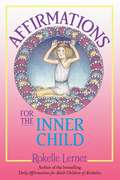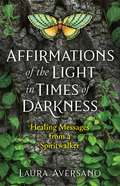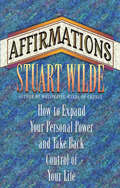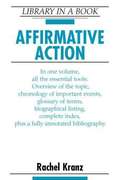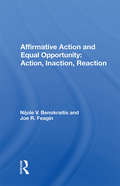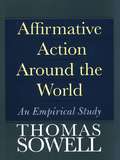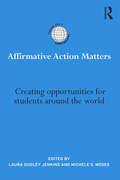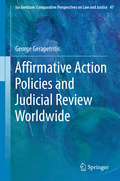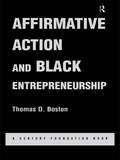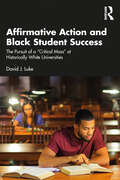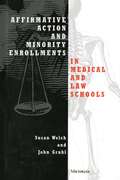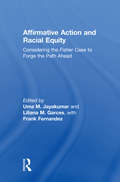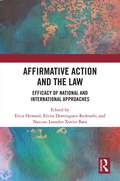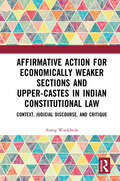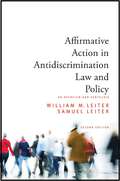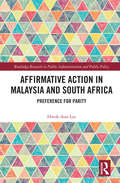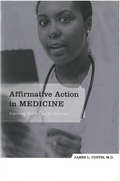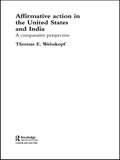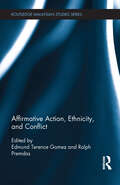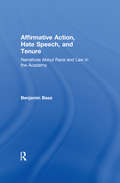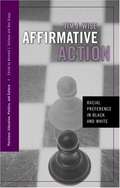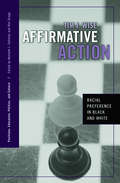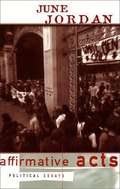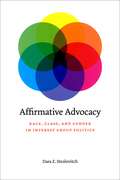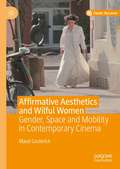- Table View
- List View
Affirmations for the Inner Child
by Rokelle LernerAll of us need positive affirmation throughout our lives. As children, these powerful messages helped us to know that we were worthwhile, that it was all right to want food and to be touched, and that our very existence was a precious gift. The messages that we received from our parents helped us to form decisions that determined the course of our lives. If we were raised with consistent, nurturing parents, we conclude that life is meaningful and that people are to be trusted. If we were raised with parents who were addictively or compulsively ill, we determine that life is threatening and chaotic--that we are not deserving of joy. These are the crucial decisions that impact our lives long after we have forgotten them. Unfortunately, childhood judgments don't disappear. They remain as dynamic forces that contaminate our adulthood. When childhood needs are not taken care of because of abuse or abandonment, we spend our lives viewing the world through the distorted perception of a needy infant or an angry adolescent. The more we push these child parts away, the more control they have over us. This collection of daily meditations is dedicated to those adults who are ready to heal their childhood wounds. It is through this courageous effort that we will move from a life of pain into recovery.
Affirmations of the Light in Times of Darkness: Healing Messages from a Spiritwalker
by Laura Aversano• Offers transformational writings that actively transmit the author&’s healing wisdom and spiritual support, guiding the reader through the abyss and into the light hidden within • Includes affirmations that address trauma, depression, grief, anger, and revelation; awaken individual spiritual paths; provide solace and protection; and contribute to the collective evolution of humanity and the earth An ancestral empath, medical intuitive, spiritwalker, psychic channel, and modern-day mystic, Laura Aversano comes from an ancient lineage of Sicilian adepts, and seers. Displaying the strongest characteristics of her lineage in centuries, she has been communicating with the spirit world since childhood and is also trained in the divine mysteries of esoteric Christianity, in plant medicine and shamanism by indigenous elders, and in many modes of hands-on therapy. As a daily healer with limitless compassion, Laura works with a long waiting list of the physically, mentally, and spiritually wounded. Even at a distance and in absentia with clients and in words to readers, she miraculously lets each person&’s destiny work for itself. Contact with her sometimes seems as if nothing happened; then the astonishing takes place. In this collection of inspired prayers and powerful affirmations, the author actively transmits her healing wisdom and spiritual support, guiding the reader through thoughts and emotions into the uncharted territory of the unknown, through the abyss and into the light hidden within. Addressing trauma, depression, grief, anger, and revelation, her words awaken individual spiritual paths, provide solace and protection, and contribute to the collective evolution of humanity and the earth. Sending healing vibrationally as well as through the written word, her activated prayers and affirmations affect change invisibly but profoundly. Reading her words will leave you forever transformed, initiated into the spiritual path of light, even in times of darkness.
Affirmations: How To Expand Your Personal Power And Take Back Control Of Your Life
by Stuart WildeThis inspirational book serves as a magnificent battle plan, where you learn to expand the power you already have in order to win back absolute control of your life.
Affirmative Action
by Rachel KranzOne of the most controversial political issues of the past three decades has been the question of affirmative action. The phrase was first used in 1965 when President Lyndon B. Johnson issued Executive Order 11246.
Affirmative Action And Equal Opportunity: Action, Inaction, Reaction
by Nijole V. BenokraitisThe affirmative action program has engendered a hostile reaction in many quarters. Originating in presidential executive orders and civil rights legislation, the program is intended to combat institutional race and sex discrimination by encouraging public and private organizations to go beyond the mere cessation of formal discriminatory practices—to enact their own programs to end unfair practices. In contrast to the passive nondiscrimination of equal opportunity, affirmative action means that employers must act positively, affirmatively, and aggressively to remove all barriers, however informal or subtle, that prevent minorities and women from having equal access to all levels of the nation's educational, industrial, and government institutions. Is affirmative action, in fact, geared to equal opportunity? Or has it resulted in greater inequality for white males? The authors of this book empirically examine employment in government, industry, and higher education and enrollment in colleges and universities to determine the current status of women and minorities as employees and students. They also describe the machinery of affirmative action, its budget and staff problems, the compliance and enforcement processes, and the results of the program. Their final chapter includes a theoretical explanation for the very apparent resistance to affirmative action and expresses their pessimism about the program's ability to accomplish its goals, especially in light of recent efforts to weaken its already limited power. They close with a discussion of the future of affirmative action and the likelihood of achieving equal opportunity in employment.
Affirmative Action Around the World: An Empirical Study
by Thomas SowellThis book moves the discussion of affirmative action beyond the United States to other countries that have had similar policies, often for a longer time than Americans have. It also moves the discussion beyond the theories, principles, and laws that have been so often debated to the actual empirical consequences of affirmative action in the United States and in India, Nigeria, Malaysia, Sri Lanka, and other countries. Both common patterns and national differences are examined. Much of what emerges from a factual examination of these policies flatly contradicts much of what was expected and much of what has been claimed.
Affirmative Action Matters: Creating opportunities for students around the world (International Studies in Higher Education)
by Michele S. Moses Laura Dudley JenkinsAffirmative Action Matters focuses specifically on affirmative action policies in higher education admissions, the sphere that has been the most controversial in many of the nations that have such policies. It brings together distinguished scholars from diverse nations to examine and discuss the historical, political and philosophical contexts of affirmative action and clarify policy developments to further the meaningful equality of educational opportunity. This unique volume includes both well established and emerging policies from the Americas, Europe, Africa, and Asia, policies which developed under a variety of political systems and target a range of underrepresented groups, based on race, ethnicity, gender, class, social background, or region. Accessible and thought provoking case studies of affirmative action demonstrate that such policies are expanding to different countries and target populations. While some countries, such as India, have affirmative action policies that predate those in the United States, affirmative action is a recent development in countries such as Brazil and France. Legal or political pressures to move away from explicitly race-based policies in several countries have complicated affirmative action and make this assessment of international alternatives particularly timely. New or newly modified policies target a variety of disadvantaged groups, based on geography, class, or caste, in addition to race or sex. International scholars in six countries spanning five continents offer insights into their own countries’ experiences to examine the implications of policy shifts from race toward other categories of disadvantage, to consider best practices in student admission policies, and to assess the future of affirmative action.
Affirmative Action Policies and Judicial Review Worldwide (Ius Gentium: Comparative Perspectives on Law and Justice #47)
by George GerapetritisThis book discusses affirmative action or positive discrimination, defined as measures awarding privileges to certain groups that have historically suffered discrimination or have been underrepresented in specific social sectors. The book's underlying rationale is that one cannot place at the same starting point people who have been treated differently in the past because in this way one merely perpetuates a state of difference and, in turn, social gaps are exaggerated and social cohesion is endangered. Starting out with an introduction on the meaning and typology of affirmative action policies, the book goes on to emphasise the interaction of affirmative action with traditional values of liberal state, such as equality, meritocracy, democracy, justice, liberalism and socialism. It reveals the affirmative action goals from a legal and sociological point of view, examining the remedial, cultural, societal, pedagogical and economy purposes of such action. After applying an institutional narrative of the implementation of affirmative action worldwide, the book explains the jurisprudence on the issue through syntheses and antitheses of structural and material variables, such as the institutional recognition of the policies, the domains of their implementation and their beneficiaries. The book eventually makes an analytical impact assessment following the implementation of affirmative action plans and the judicial response, especially in relation to the conventional human rights doctrine, by establishing a liaison between affirmative action and social and group rights. . The book applies a multi-disciplinary and comparative methodology in order to assess the ethical standing of affirmative action policies, the public interests involved and their effectiveness towards actual equality. In the light of the above analysis, the monograph explains the arguments considering affirmative action as a theology for substantive equality and the arguments treating this policy as anathema for liberalism. A universal discussion currently at its peak.
Affirmative Action and Black Entrepreneurship
by Thomas D BostonThis volume isolates the cause of continuing disparities not only between blacks and whites, but amongst blacks as well. Key factors discussed include the current state of the economy the influence of public policies, the persistence of urban poverty, economic opportunities, changes in family and social structure and equal opportunities. The city o
Affirmative Action and Black Student Success: The Pursuit of a "Critical Mass" at Historically White Universities
by David J. LukeDavid J. Luke’s Affirmative Action and Black Student Success is a concrete and comprehensive exploration into diversity programs on college campuses and their impact on Black student success and outcomes. Viewed over the span of 12 years, three large, public universities in the United States and Canada provide dynamic settings for this book’s comparative focus on diversity initiatives. The author identifies key regional and national differences between these settings, as well as differences in the way diversity is framed and understood to illustrate how diversity programs and policies are shaped and the extent and ways in which these programs and policies then shape student experiences and outcomes. The values and meanings organizations ascribe to diversity, inclusion, and equity are frequently in transition, and the book’s compelling analysis conveys the importance of race in these contexts—when racism is presumed to be in decline, as is the case in colorblindness and demonstrations of multiculturalist ideals, racial inequalities are concealed and remain unnoticed. The author makes a range of practical recommendations and argues that clear and explicit goals about race and representation are integral in the expansion and preservation of inclusive institutional environments. Unflinching in its critique and pragmatic with its recommendations, this book offers invaluable analysis for university leaders, diversity officers, and student affairs professionals, as much as it provides new insights for scholars and educators of racism, higher education, diversity, and organizational culture.
Affirmative Action and Minority Enrollments in Medical and Law Schools
by Susan Welch John GruhlAffirmative action is one of the central issues of American politics today, and admission to colleges and universities has been at the center of the debate. While this issue has been discussed for years, there is very little real data on the impact of affirmative action programs on admissions to institutions of higher learning. Susan Welch and John Gruhl in this groundbreaking study look at the impact on admissions of policies developed in the wake of the United States Supreme Court's landmark 1978 Bakke decision. In Bakke, the Court legitimized the use of race as one of several factors that could be considered in admissions decisions, while forbidding the use of quotas. Opponents of affirmative action claim that because of the Bakke decision thousands of less-qualified minorities have been granted admission in preference to more qualified white students; proponents claim that without the affirmative action policies articulated in Bakke, minorities would not have made the gains they have made in higher education. Based on a survey of admissions officers for law and medical schools and national enrollment data, the authors give us the first analysis of the real impact of the Bakke decision and affirmative action programs on enrollments in medical and law schools. Admission to medical schools and law schools is much sought after and is highly competitive. In examining admissions patterns to these schools the authors are able to identify the effects of affirmative action programs and the Bakke decision in what may be the most challenging case. This book will appeal to scholars of race and gender in political science, sociology and education as well as those interested in the study of affirmative action policies. Susan Welch is Dean of the College of Liberal Arts and Professor of Political Science, Pennsylvania State University. John Gruhl is Professor of Political Science, University of Nebraska-Lincoln.
Affirmative Action and Racial Equity: Considering the Fisher Case to Forge the Path Ahead
by Uma M. Jayakumar Liliana M. GarcesThe highly anticipated U.S. Supreme Court decision in Fisher v. University of Texas placed a greater onus on higher education institutions to provide evidence supporting the need for affirmative action policies on their respective campuses. It is now more critical than ever that institutional leaders and scholars understand the evidence in support of race consideration in admissions as well as the challenges of the post-Fisher landscape. This important volume shares information documented for the Fisher case and provides empirical evidence to help inform scholarly conversation and institutions’ decisions regarding race-conscious practices in higher education. With contributions from scholars and experts involved in the Fisher case, this edited volume documents and shares lessons learned from the collaborative efforts of the social science, educational, and legal communities. Affirmative Action and Racial Equity is a critical resource for higher education scholars and administrators to understand the nuances of the affirmative action legal debate and to identify the challenges and potential strategies toward racial equity and inclusion moving forward.
Affirmative Action and the Law: Efficacy of National and International Approaches
by Erica Howard Elvira Dominguez-Redondo Narciso Leandro Xavier BaezAffirmative Action and the Law analyses the practical application of affirmative action measures and their efficacy in achieving substantive equality through the lenses of the United Nations human rights machinery and the legal regime and policies implemented in China, India, Central and South America, South Africa and the United Kingdom. The product of a joint research project involving academics from the Brazil, Chile, Mexico, India, Spain and the United Kingdom, the findings identify and reflect on trends emerging from State practice across the world in eradicating structural inequality through special measures for certain designated groups. The book seeks to provide a coherent and systematic approach to the analysis of special measures in the targeted countries. It also comprises two case-studies with in-depth insights on gender diversity on the boards of public listed companies in the UK and the European Union and the access of persons with disabilities to higher education in Brazil. The book will be a valuable resource for students and academics in the field of human rights, law, sociology and politics. It will also provide a source of good practice for states and policy makers in the framing of responses to increased inequality at national and international level; and for civil society actors seeking to explore meaningful interaction with a highly controversial topic in society.
Affirmative Action for Economically Weaker Sections and Upper-Castes in Indian Constitutional Law: Context, Judicial Discourse, and Critique
by Asang WankhedeThis book examines the controversial 103rd Constitutional Amendment to the Indian Constitution that introduced an income and asset ownership-based new constitutional standard for determining backwardness marking a significant shift in the government’s social and public policy. It also analyses state level policies towards backwardness recognition of upper-caste dominant groups through case studies of Maharashtra, Haryana, and Gujarat. It provides an analytical and descriptive account of the proliferation of reservation policy in India and critiques these interventions to assess their implication on constitutional jurisprudence. Further, it assesses the theoretical and empirical challenges such developments pose to the principle of substantive equality and scope of affirmative action policies in Indian constitutional law and general discrimination law theory. The monograph shows how opening up of reservations for dominant upper-caste groups and general category will have implications for the constitutional commitment to addressing deeply entrenched marginalisation emanating from the traditional social hierarchy and the understanding of substantive equality in Indian Constitutional law. Further, it highlights key contradictions, incoherence, and internal tension in the design of the reservations for Economically Weaker Sections Critical, comprehensive, and cogently argued, this book will contribute and shape ongoing constitutional policy and judicial debates. It will be of great interest to scholars and researchers of law, Indian politics, affirmative action, social policy, and public policy.
Affirmative Action in Antidiscrimination Law and Policy: An Overview and Synthesis, Second Edition
by William M. Leiter Samuel LeiterRacism, sexism, and ethnic discrimination have long represented a seemingly intractable problem. Affirmative action was conceived as an attack on these ingrained problems, but today it is widely misunderstood. This volume reviews new developments in affirmative action law, policy, and ideological conflict in the areas of employment, education, voting, and housing. The revised edition adds a discussion of age, disability, and sexual-orientation discrimination, providing a truly comprehensive portrait of affirmative action that is informed by history, law, political science, sociology, and economics.
Affirmative Action in Malaysia and South Africa: Preference for Parity (Routledge Research in Public Administration and Public Policy)
by Hwok-Aun LeeMalaysia and South Africa implement the most extensive affirmative action programmes worldwide. This book explores why and how to effect preferential treatment which has been utilized in the pursuit of inter-ethnic parity, specifically in higher education, high-level occupations, enterprise development and wealth ownership. Through methodical and critical analyses of data on education, workforce and population, the book evaluates the primary objectives of increasing majority representation in education, employment, enterprise and ownership. The book also critically considers questions of the attainments and limitations of ethnic preferential treatment in reducing disparity, the challenges of developing capability and reducing dependency and the scope for policy reforms.
Affirmative Action in Medicine: Improving Health Care for Everyone
by James L. CurtisAffirmative action programs have significantly changed American medicine for the better, not only in medical school admissions and access to postgraduate training but also in bringing a higher quality of health care to all people. James L. Curtis approaches this important transition from historical, statistical, and personal perspectives. He tells how over the course of his medical education and career as a psychiatrist and professor--often as the first or only African American in his cohort--the status of minorities in the medical professions grew from a tiny percentage to a far more equitable representation of the American population. Advancing arguments from his earlier book, Blacks, Medical Schools, and Society, Curtis evaluates the outcomes of affirmative action efforts over the past thirty years. He describes formidable barriers to minority access to medical-education opportunities and the resulting problems faced by minority patients in receiving medical treatment. His progress report includes a review of two thousand minority students admitted to U. S. medical schools in 1969, following them through graduation and their careers, comparing them with the careers of two thousand of their nonminority peers. These samples provide an important look at medical schools that, while heralding dramatic progress in physician education and training opportunity, indicates much room for further improvement. A basic hurdle continues to face African Americans and other minorities who are still confined to segregated neighborhoods and inferior school systems that stifle full scholastic development. Curtis urges us as a nation to develop all our human resources through an expansion of affirmative action programs, thus improving health care for everyone. James L. Curtis is Clinical Professor Emeritus of Psychiatry, Columbia University College of Physicians and Surgeons.
Affirmative Action in the United States and India: A Comparative Perspective (Routledge Frontiers Of Political Economy Ser. #Vol. 56)
by Thomas E. WeisskopfArguably, two of the most important national experiences with policies of positive discrimination in favor of historically disadvantaged ethnic or caste minority groups are the cases of 'Affirmative Action' in the United States and 'Reservation Policies' in India. This essential new book examines the consequences of affirmative action in both count
Affirmative Action, Ethnicity and Conflict (Routledge Malaysian Studies Series)
by Edmund Terence Gomez Ralph PremdasIn recent years a number of countries have introduced affirmative action programmes in order to put right historical injustices and economic inequalities involving ethnic communities. This book examines affirmative action programmes in a range of countries around the world. It discusses how such programmes came about and how they have been implemented, and examines their effectiveness. Throughout it explores how far affirmative action programmes reinforce ethnic identities and thereby contribute to division and conflict. The countries covered are India, the United States, South Africa, Northern Ireland, Brazil, Malaysia and Fiji.
Affirmative Action, Hate Speech, and Tenure: Narratives About Race and Law in the Academy
by Benjamin BaezUniquely positioned as both a scholar and an attorney, Benjamin Baez provides a thought-provoking exploration on the current debate surrounding race and academic institutions.
Affirmative Action: Racial Preference in Black and White
by Tim J. WiseAffirmative Action examines the larger structure of institutional white privilege in education, and compares the magnitude of white racial preference with the policies typically envisioned when the term "racial preference" is used. In doing so, the book demonstrates that the American system of education is both a reflection of and a contributor to a structure of institutionalized racism and racial preference for the dominant majority.
Affirmative Action: Racial Preference in Black and White (Positions: Education, Politics, and Culture)
by Tim J. WiseAffirmative Action examines the larger structure of institutional white privilege in education, and compares the magnitude of white racial preference with the policies typically envisioned when the term "racial preference" is used. In doing so, the book demonstrates that the American system of education is both a reflection of and a contributor to a structure of institutionalized racism and racial preference for the dominant majority.
Affirmative Acts: Political Essays
by June JordanAffirmative Acts: Political Essays marks the twenty-fifth book in the celebrated career of poet, essayist, activist, and professor June Jordan. The recipient of the Lila Wallace Reader's Digest and the PEN West Freedom to Write Awards, Jordan has created a widely influential and groundbreaking body of work over several decades. With the same clear-sighted passion found in her classic essay collections Civil Wars and Living Room, in Affirmative Acts Jordan writes brilliantly about controversial, critical, and timely issues that are currently at the center of American debate. Whether discussing the tragic dismantling of affirmative action; ruminating on the combustible intersections of race, class, gender, and injustice; reflecting on the palpable hatred that infuses American society; or speaking out against worldwide suffering, June Jordan paints, as in her previous works, what she calls "an intimate face of universal struggle."
Affirmative Advocacy: Race, Class, and Gender in Interest Group Politics
by Dara Z. StrolovitchThe United States boasts scores of organizations that offer crucial representation for groups that are marginalized in national politics, from women to racial minorities to the poor. Here, in the first systematic study of these organizations, Dara Z. Strolovitch explores the challenges and opportunities they face in the new millennium, as waning legal discrimination coincides with increasing political and economic inequalities within the populations they represent. Drawing on rich new data from a survey of 286 organizations and interviews with forty officials, Strolovitch finds that groups too often prioritize the interests of their most advantaged members: male rather than female racial minorities, for example, or affluent rather than poor women. But Strolovitch also finds that many organizations try to remedy this inequity, and she concludes by distilling their best practices into a set of principles that she calls affirmative advocacy—a form of representation that aims to overcome the entrenched but often subtle biases against people at the intersection of more than one marginalized group. Intelligently combining political theory with sophisticated empirical methods, Affirmative Advocacy will be required reading for students and scholars of American politics.
Affirmative Aesthetics and Wilful Women: Gender, Space and Mobility in Contemporary Cinema
by Maud CeuterickFifty years of feminist thought have made the idea that women stay at home while men dominate the streets seem outdated; nevertheless, Ceuterick argues that theoretical considerations of gender, space, and power in film theory remain limited by binary models. Looking instead to more fluid models of spatial relations inspired by Sara Ahmed, Rosi Braidotti, and Doreen Massey, this book discovers wilful, affirmative, and imaginative activations of gender on screen. Through close, micro-analysis of historic European Messidor (Alain Tanner, 1979) and contemporary world cinema: Vendredi Soir (Claire Denis, 2002), Wadjda (Haifaa Al-Mansour, 2012), and Head-On (Fatih Akin, 2004), this book identifies affirmative aesthetics: light, texture, rhythm, movement and sound, all of which that participate in a rewriting of bodies and spaces. Ultimately, Ceuterick argues, affirmative aesthetics can challenge the gender categories and power structures that have been thought to determine our habitation of cars, homes, and city streets. Wilful women drive this book forward, through their movement and stillness, imagination and desire, performance and abjection.
